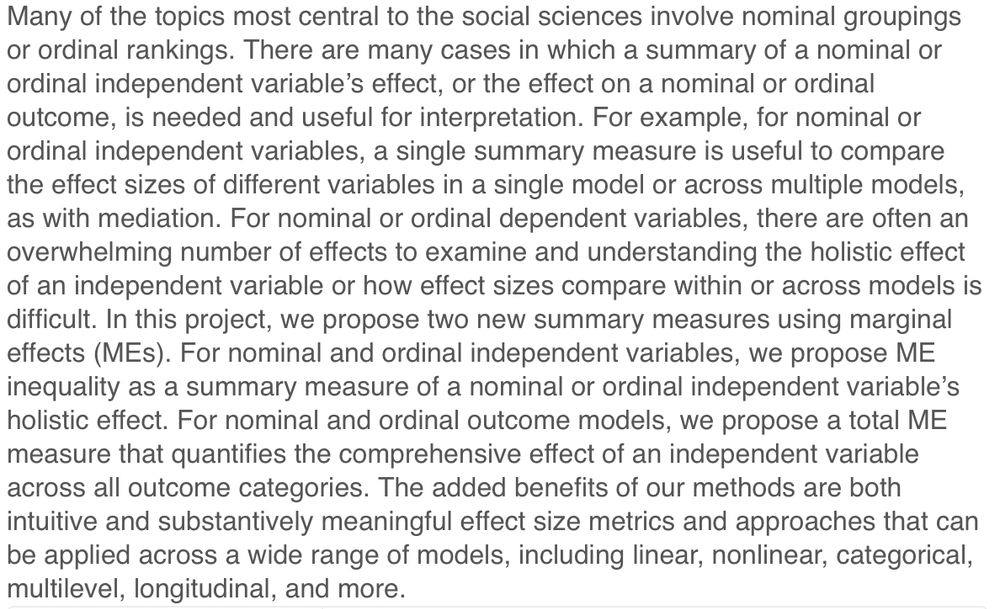Trenton Mize
@trentonmize.bsky.social
1.1K followers
1.3K following
18 posts
Associate professor of Sociology and Statistics (by courtesy), co-director of the Methodology Center at Purdue, and co-director of the Kernan Experimental Social Science Lab.
Greek letter enthusiast. Please clap.
www.trentonmize.com
Posts
Media
Videos
Starter Packs
Pinned
Trenton Mize
@trentonmize.bsky.social
· Jul 15
Trenton Mize
@trentonmize.bsky.social
· Feb 7
Reposted by Trenton Mize
Trenton Mize
@trentonmize.bsky.social
· Feb 6
Trenton Mize
@trentonmize.bsky.social
· Feb 5
Trenton Mize
@trentonmize.bsky.social
· Feb 5
Reposted by Trenton Mize
Trenton Mize
@trentonmize.bsky.social
· Nov 18
Trenton Mize
@trentonmize.bsky.social
· Nov 14
Trenton Mize
@trentonmize.bsky.social
· Nov 14








